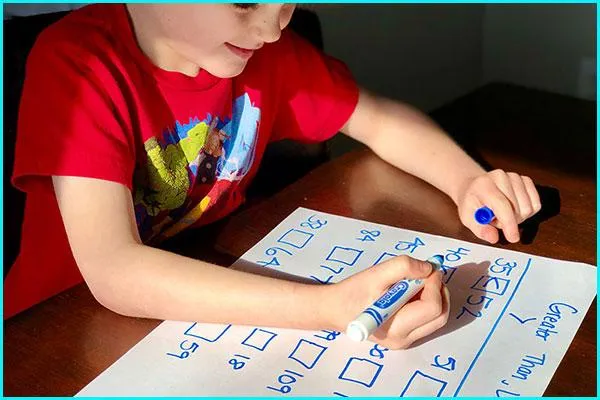
The Power of Mathematics in Problem Solving
"We will always have STEM with us. Some things will drop out of the public eye and will go away, but there will always be science, engineering, and technology. And there will always, always be mathematics." Katherine Johnson
Introduction:
In the ever-evolving landscape of education, the emphasis on mathematics skills for children has gained significant attention, and for good reason. Mathematics is not merely a subject to be learned in school; it is a fundamental tool that equips children with essential problem-solving abilities. As children navigate the challenges of the modern world, a strong foundation in mathematics becomes a key determinant of their success in problem-solving, critical thinking, and decision-making.

With that said, here are 4 reasons why you should empower your child with math skills 👊
1. Foundation for Logical thinking
Mathematics serves as the cornerstone for developing logical thinking in children. The process of solving mathematical problems involves breaking down complex tasks into smaller, more manageable steps. This analytical approach ingrained through mathematical exercises forms the basis of logical reasoning. When children engage with mathematical concepts, they learn to analyze problems systematically, identify patterns, and make connections between different elements—skills that are directly applicable to problem-solving scenarios outside the mathematics classroom.
2. Enhancing Critical Thinking Skills
The cultivation of mathematics skills nurtures critical thinking abilities in children. Mathematics challenges individuals to think beyond the surface level, encouraging them to explore multiple perspectives and solutions. Problem-solving in mathematics often requires creative thinking and the ability to approach a problem from different angles. These cognitive skills are transferable to various aspects of life, enabling children to approach challenges with adaptability and resourcefulness.
3. Real-World Applications
The practical applications of mathematics in everyday life underscore its importance for problem-solving. From managing finances to understanding data and making informed decisions, mathematical skills are indispensable. In a technologically driven world, proficiency in mathematics is closely tied to the ability to interpret and manipulate data—a skillset crucial for solving real-world problems. Whether it be measuring ingredients for a recipe, calculating travel time, or budgeting expenses, mathematical skills are woven into the fabric of daily decision-making.
4. Preparation for Future Challenges
The importance of mathematics skills for children extends beyond immediate academic success. As society continues to advance, the ability to adapt to and solve complex problems becomes increasingly vital. A solid foundation in mathematics equips children with the resilience and confidence needed to tackle challenges in diverse fields such as science, technology, engineering, and mathematics (STEM). Mathematics serves as a gateway to understanding the world, providing children with the tools to engage with and contribute to a rapidly changing global landscape.
Conclusion
In conclusion, the cultivation of mathematics skills in children is paramount for the development of robust problem-solving abilities. Beyond its role as a subject in the curriculum, mathematics serves as a vehicle for honing logical thinking, enhancing critical reasoning, and preparing children for the challenges of the future. By investing in the mathematical education of children, we empower them to navigate a world that demands innovative solutions and thoughtful problem-solving. As we look towards the future, the importance of mathematics skills for children becomes not only an educational imperative but a societal necessity.
“Tell me and I forget, teach me and I may remember, involve me and I learn.”
— Benjamin Franklin

Start your own math checklist:
Here's a quick reference checklist for parents to help their children acquire math skills
Encourage a Positive Attitude: Foster a positive attitude towards mathematics by emphasizing its real-world applications and the importance of problem-solving skills in everyday life.
Provide a Supportive Environment: Create a supportive learning environment at home where children feel comfortable exploring mathematical concepts without fear of failure.
Incorporate Math into Daily Life: Integrate math into daily activities, such as cooking, shopping, and budgeting, to demonstrate its relevance and make learning a natural part of the child's routine.
Engage in Math Games and Puzzles: Encourage the use of math games and puzzles that challenge children's problem-solving abilities and make learning enjoyable.
Promote Critical Thinking: Encourage critical thinking by asking open-ended questions that require reasoning and analysis. Discuss solutions and alternative approaches to problems.
Show Enthusiasm for Math: Demonstrate enthusiasm for mathematics yourself. A positive parental attitude towards math can influence a child's perception and interest in the subject.
Provide Learning Resources: Offer access to age-appropriate learning resources, such as math books, educational apps, and online platforms that make math engaging and interactive.
Celebrate Achievements: Acknowledge and celebrate small achievements in math to boost a child's confidence and motivation to continue exploring mathematical concepts.
Connect Math to Other Subjects: Highlight the interconnectedness of mathematics with other subjects like science and technology, fostering a holistic understanding of problem-solving across disciplines.
Seek Professional Support if Needed: If a child is facing difficulties in math, consider seeking professional support, such as a tutor or teacher, to provide additional guidance and reinforcement.
By incorporating these elements into their parenting approach, parents can play a crucial role in supporting their children's development of strong math skills and problem-solving abilities.
Copyright © 2009-2023 & beyond | Education Fever, LLC, | Privacy Policy





